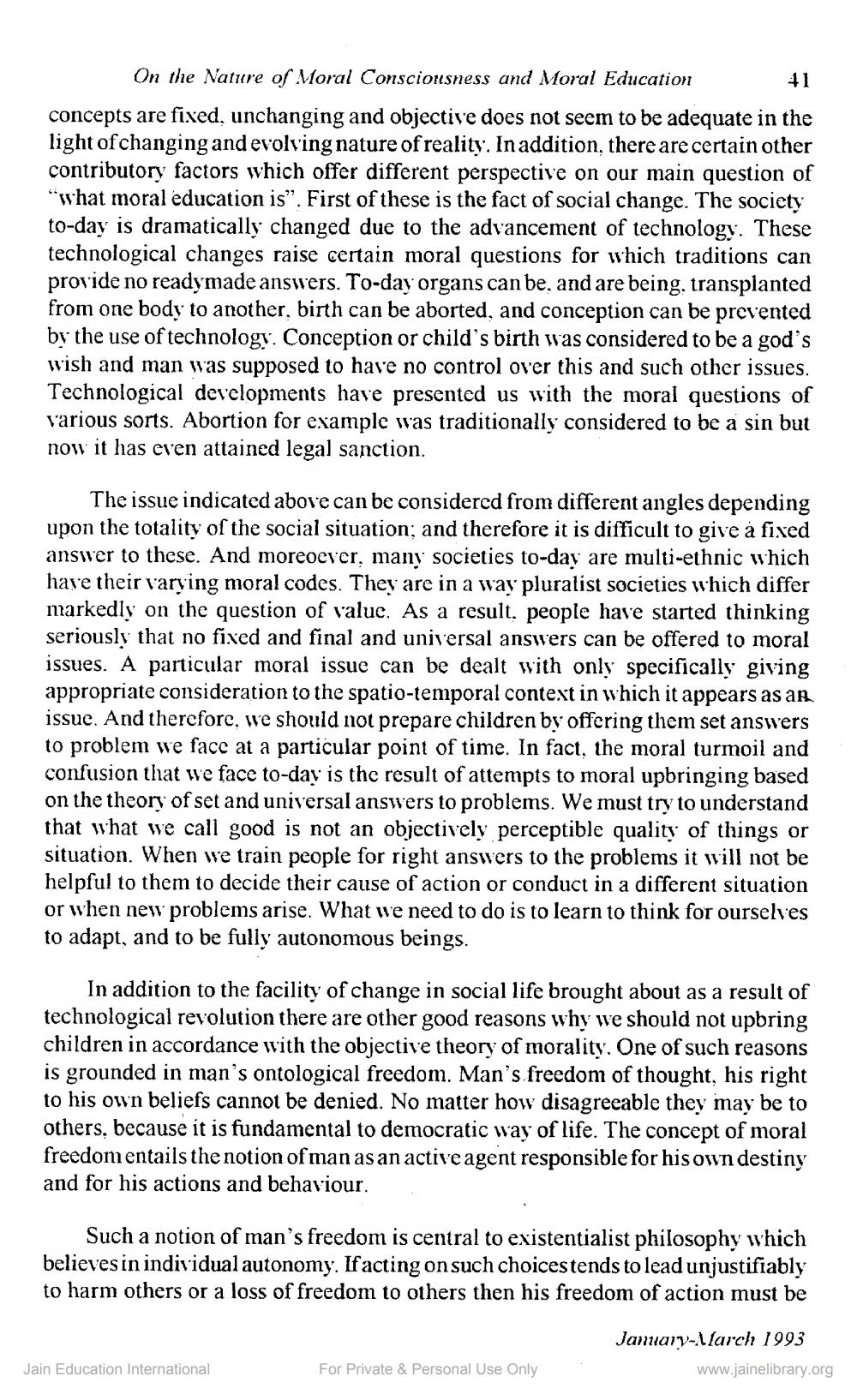________________
On the Nature of Moral Consciousness and Moral Education
41
concepts are fixed, unchanging and objective does not seem to be adequate in the light of changing and evolving nature of reality. In addition, there are certain other contributory factors which offer different perspective on our main question of "what moral education is". First of these is the fact of social change. The society to-day is dramatically changed due to the advancement of technology. These technological changes raise certain moral questions for which traditions can provide no readymade answers. To-day organs can be, and are being, transplanted from one body to another, birth can be aborted, and conception can be prevented by the use of technology. Conception or child's birth was considered to be a god's wish and man was supposed to have no control over this and such other issues. Technological developments have presented us with the moral questions of various sorts. Abortion for example was traditionally considered to be a sin but now it has even attained legal sanction.
The issue indicated above can be considered from different angles depending upon the totality of the social situation; and therefore it is difficult to give a fixed answer to these. And moreoever, many societies to-day are multi-ethnic which have their varying moral codes. They are in a way pluralist societies which differ markedly on the question of value. As a result, people have started thinking seriously that no fixed and final and universal answers can be offered to moral issues. A particular moral issue can be dealt with only specifically giving appropriate consideration to the spatio-temporal context in which it appears as an issue. And therefore, we should not prepare children by offering them set answers to problem we face at a particular point of time. In fact, the moral turmoil and confusion that we face to-day is the result of attempts to moral upbringing based on the theory of set and universal answers to problems. We must try to understand that what we call good is not an objectively perceptible quality of things or situation. When we train people for right answers to the problems it will not be helpful to them to decide their cause of action or conduct in a different situation or when new problems arise. What we need to do is to learn to think for ourselves to adapt, and to be fully autonomous beings.
In addition to the facility of change in social life brought about as a result of technological revolution there are other good reasons why we should not upbring children in accordance with the objective theory of morality. One of such reasons is grounded in man's ontological freedom. Man's freedom of thought, his right to his own beliefs cannot be denied. No matter how disagreeable they may be to others, because it is fundamental to democratic way of life. The concept of moral freedom entails the notion of man as an active agent responsible for his own destiny and for his actions and behaviour.
Such a notion of man's freedom is central to existentialist philosophy which believes in individual autonomy. If acting on such choices tends to lead unjustifiably to harm others or a loss of freedom to others then his freedom of action must be
Jain Education International
For Private & Personal Use Only
January-March 1993
www.jainelibrary.org




